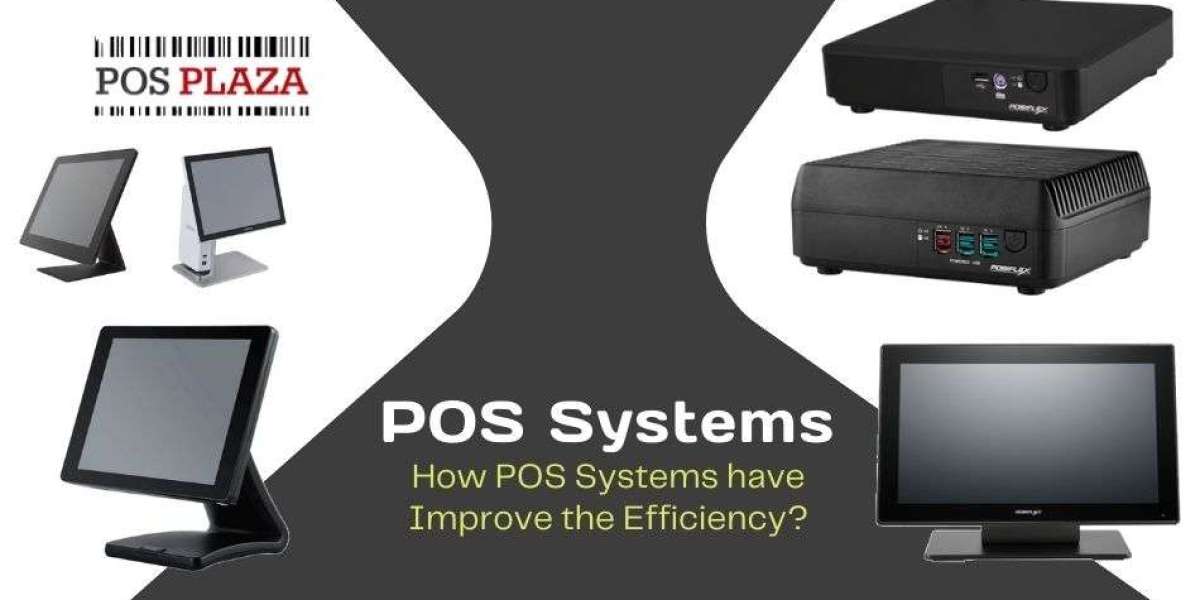In the fast-paced world of retail and hospitality, the integration of Point of Sale (POS) systems has revolutionized the way businesses operate. From small enterprises to large chains, POS systems have become an indispensable tool for enhancing efficiency and streamlining operations. In this article, we delve into the transformative impact of POS systems, exploring the various ways they have improved efficiency across different industries.
Automation and Accuracy
One of the primary benefits of POS systems is the automation of routine tasks. Manual processes, such as inventory management and sales tracking, can be time-consuming and prone to errors. POS systems, equipped with advanced software, automate these tasks, reducing the likelihood of human error and ensuring accurate data.
Automated inventory management, for example, enables businesses to track stock levels in real-time. This not only prevents stockouts but also facilitates timely reordering, optimizing the supply chain. The accuracy provided by POS systems extends to financial transactions, minimizing discrepancies and fostering a more transparent financial environment.
Enhanced Customer Service
POS systems play a crucial role in enhancing the overall customer experience. With features like quick and secure payment processing, businesses can provide a smoother and more efficient checkout process. This not only reduces waiting times but also improves customer satisfaction.
Additionally, POS systems often integrate customer relationship management (CRM) tools. These tools allow businesses to gather valuable customer data, enabling personalized services and targeted marketing campaigns. By understanding customer preferences and purchase history, businesses can tailor their offerings, fostering customer loyalty and repeat business.
Streamlined Reporting and Analytics
Effective decision-making relies on accurate and timely information. POS systems provide robust reporting and analytics features that empower businesses with valuable insights. Managers can access real-time sales data, track employee performance, and identify top-performing products.
This data-driven approach enables businesses to make informed decisions, such as adjusting pricing strategies, optimizing inventory levels, and identifying market trends. The ability to generate comprehensive reports with just a few clicks streamlines the decision-making process, contributing to overall operational efficiency.
Employee Management and Productivity
POS systems extend their impact beyond customer-facing operations to employee management. These systems often include features for employee time tracking, scheduling, and performance analysis. By automating these aspects, businesses can optimize workforce management, reduce labor costs, and improve overall productivity.
Employee accountability is enhanced through POS systems, as transactions are logged and tracked. This transparency not only deters fraudulent activities but also encourages a culture of responsibility among employees. Integrating POS systems with employee training modules further ensures that staff members are proficient in utilizing the technology, maximizing its benefits.
Adaptability and Scalability
The dynamic nature of business requires adaptable and scalable solutions. POS systems are designed to evolve with the changing needs of a business. Whether it's expanding to new locations, introducing new products, or adjusting to market trends, POS systems can be customized and scaled accordingly.
Cloud-based POS systems, in particular, offer the flexibility of remote management and updates. This adaptability ensures that businesses can stay ahead of the curve, embracing technological advancements without the need for extensive overhauls. Scalable POS solutions accommodate growth, making them suitable for businesses of all sizes.
Enhanced Security Measures
As cyber threats become more sophisticated, ensuring the security of financial transactions and customer data is paramount. Modern POS systems come equipped with advanced security features, including encryption and tokenization, to safeguard sensitive information.
By adopting POS systems with robust security measures, businesses can instill confidence in their customers and protect their brand reputation. The reduction of manual handling of cash transactions also minimizes the risk of theft and errors, contributing to a more secure and efficient operational environment.
Conclusion
In conclusion, the integration of POS systems has undeniably transformed the landscape of business operations. From automating mundane tasks to providing valuable insights through analytics, POS systems have become a cornerstone of efficiency in the retail and hospitality sectors. The adaptability, scalability, and enhanced security measures further solidify their role as a vital tool for businesses striving for success in a competitive market. Embracing POS technology is not just a trend; it is a strategic move towards operational excellence and improved customer satisfaction.









